![]()
![]()
![]()
Use LEFT and RIGHT arrow keys to navigate between flashcards;
Use UP and DOWN arrow keys to flip the card;
H to show hint;
A reads text to speech;
16 Cards in this Set
- Front
- Back
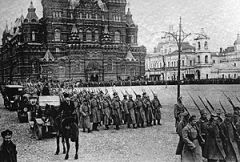
Russian Revolution 1917
|
p.1032 Catalyst provided by WWI, as the accumulated tensions of Russian society exploded. Exploited and suffering from wartime shortages, workers took to the streets to express their outrage.
Sig- Communists came to power on the back of this revolutionary upheaval. Forced Tsar Nicholas II to abdicate throne, thus ended the Romanov dynasty. |
|
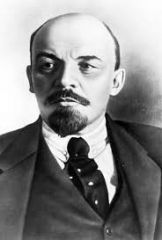
Bolsheviks/Lenin
|
p.1033 Was a small socialist party with a determined and charismatic leader, Vladimir Ilyich Ulyanov (Lenin). He believed Russia was ready for a socialist revolution despite it's industrial backwardness.
Sig- Called for dissolution of the Provisional Gov't and transfer of state power to the soviets. Seized power in late October. Now called themselves communists. Surprisingly held off one enemies after another and were victorious by 1921: thanks to peace treaty with Germany in 1918 to end their part of the war. |
|
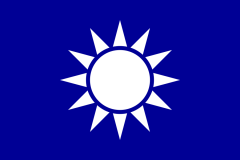
Guomindang
|
p.1036 The nationalist party which governed China after 1928. Led by military officer, Chiang Kai-Shek.
Sig- Promoted a measure of modern development (railroads, light industry, banking, airline services) in the decades that followed. Though these achievements were mostly limited to the cities leaving the rural areas, where most lived, impoverished. The Guomindang's base of support was also narrow, deriving from urban elites, rural landlords, and Western powers. |
|
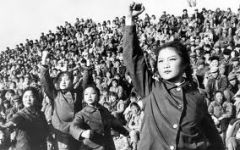
Chinese Revolution
|
p. 1035-1036 The CCP led by Mao Zedong were victorious over the Chinese Nationalist party. Led to communist take over of China.
Sig- After emerging victorious the Communist party took over China and established the People's Republic of China, relocating the Nationalist Party to mainland Taiwan forming the Republic of China |
|
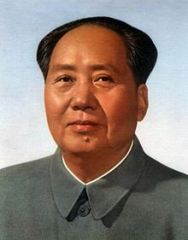
Mao Zedong
|
p.1035 The charismatic leader of the Chinese Communist Party (CCP). Announced triumphantly in Beijing's Tiananmen Square that "the Chinese people have stood up".
Sig- Leader of the CCP in the Chinese Rev. which allowed them to emerge victorious. Also led the Long March (1934-1935), which ultimately allowed him to rise to a position of dominant leadership. |
|
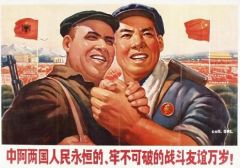
building socialism
|
p.1038 The modernization and industrialization of the backward societies. Embraced many of the material values of Western capitalist societies and were similar to the new nations of the 20th century.
Sig- Sought a distinctly socialist modernity. Involved frontal attack of new inequalities of class and gender, an effort to prevent the making of new inequalities as the process unfolded. Generated a political system thoroughly dominated by the Communist Party. |
|
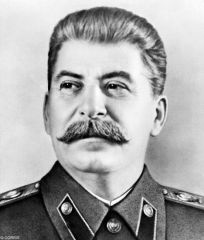
Stalin
|
p.1034-1035 The USSR's longtime leader and successor to Lenin.
Sig- Had determined that Soviet security required "friendly" gov'ts in the region in order to end the threat of invasions from the West. Frontal attack on long-standing inequalities of class and gender, an effort to stop new inequalities, modernization; promoted cultural values of selflessness and collectivism. |
|
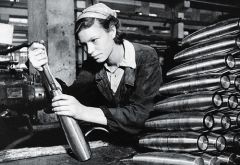
Zhenotdel
|
p.1039 A special organization of Russia communist party (Women's department) established in 1919. Abolished by Stalin in 1930.
Sig- Pushed a decidedly feminist agenda in the 1920s. Organized numerous conferences, trained women to run day-care and medical centers, published papers and magazines, literacy and prenatal classes, and encouraged Muslim women to take off their veils. Remarkable experiment in women's liberation by means of state action. |
|
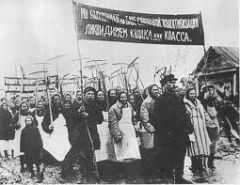
collectivization
|
p.1040-1041 Second and more distinctly socialist stage of rural reform sought to end private property in land. Was generally a peaceful process due to the close relationship between the CCP and peasantry.
Sig- Mobilized the communist rural farmers from their own land to state-run communist farms. Peaceful in China in contrast with the mass violence in Russia. Caused famine in Russia which killed 5 million people and and China killing nearly 20 million or more. Failure due to the high number of deaths, and exclusion of powerful people. |
|
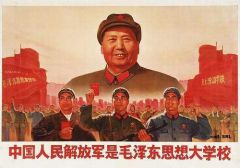
Cultural Revolution
|
p.1044 Chinese great purges led by Mao Zedong against the communists, attacked teachers, factory owners, and anyone else that could be deemed as an enemy.
Sig- Mao convinced that the Communist Party had been corrupted y capitalists values and were no longer animated by idealistic revolutionary visions of earlier times; called for rebellion against the party itself. The Red Guards swept across the country killing many people and soon violence erupted throughout the whole country, and a civil war threatened China. Led to ultimate collapse of communist experiment at end of century. |
|
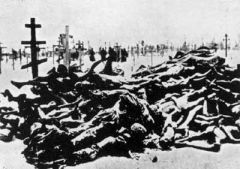
Great Purges/Terror
|
p.1044 Process that culminated in the late 1930s by a paranoid Stalin in which enveloped tens of thousands of prominent communists, including virtually all of Lenin's top associates, millions of ordinary people.
Sig- Mostly targeted the Nazis. Sent many to work in the gulags, remote labor camps. Close to 1 million executed and 4-5 million sent to camps in which they worked in horrendous conditions and died. Consumed the energies of corps of officials, investigators, interrogators, informers, guards, and executioners. Discredited socialism and contributed to the collapse of the communist experiment. |
|
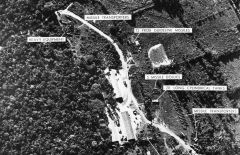
Cuban missile crisis
|
p.1047 The USSR began hiding nuclear weapons in Cuba, which is a close proximity to the United States: Soviets believed this would deter further U.S action against Castro.
Sig- The missiles were discover on October in 1962 , and for 13 days American forces blockade the island and prepared for an invasion. Nuclear exchange was imminent. Ended in a treaty between USSR and U.S where they removed their missiles in exchange for them not to invade Cuba. Gave concrete expression to the most novel and dangerous dimension of the cold war-arms race in nuclear weapons.aazxa |
|
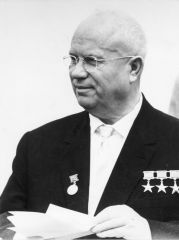
Nikita Krushchev
|
p.1047 Succeeded Stalin in 1953 after his death. Viewed Stalin as a criminal with his lengthy speech delivered to a party congress.
Sig- The successor of Stalin, who he saw as a criminal through his lengthy speech which shocked many of the party faithful, as Stalin was viewed a a "genius of all time". Declared that Stalin saw enemies and spies everywhere as he indulged in great willfulness and choked a person morally and physically. |
|
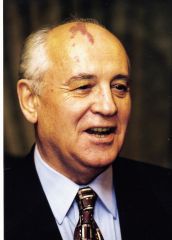
Mikhail Gorbachev
|
p.1051 Reformist leader who came to power in 1985. He was also the general secretary of the Soviet Communist Party.
Sig- Was Russia first president and also created the perestroika in 1987. He also began many economic and social reforms though most failed. Intended to revive and save Soviet socialism from it's accumulated dysfunctions. His efforts however led to political disintegration of the Soviet Union on Xmas Day 1991. |
|
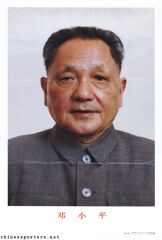
Deng Xiaoping
|
p.1052 Emerged as China's paramount leader after Mao Zedong's death.
Sig- Committed to ending the periodic upheavals of the Maoist era. Fostered huge economic and political stability, but created corruption comparable to the Guomindang. Suppress many of Mao's reforms and soon many banned plays, literature, Western classics, and etc. soon reappeared. Praised his role as a revolutionary leader. (Also dismantled collectivized farming.) |
|
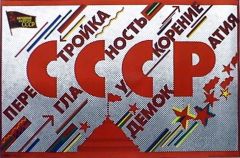
perestroika/glasnost
|
p.1054 Economic program launched by Gorbachev (restructuring and openess) in 1987. Instated free state enterprise.
Sig- Paralleled all aspects of Chinese approach, There was heavy resistance to these efforts from entrenched and state bureaucracies. Gorbachev hoped that glasnost would overcome the pervasive, long standing distrust between society and the state and would energize Soviet society for the tasks of economic reforms. |

